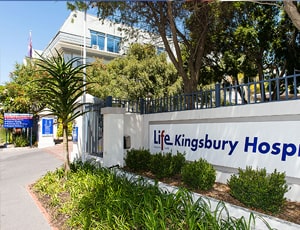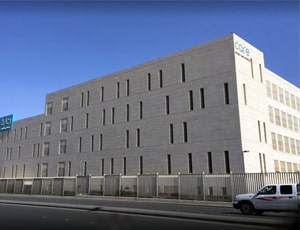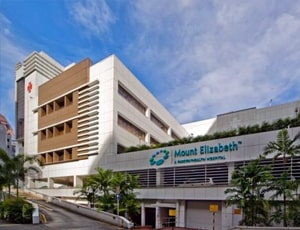A chemical peel is an effective way to satisfy people who are unhappy with the look and feel of their skin. It is a face peeling treatment in which a chemical is applied to the skin, which eventually “peels off” the upper layer of the skin to expose a new, fresh, and smoother layer of the skin.
Face peeling treatment is the most suitable for people who have positive and realistic expectations out of the cosmetic procedure for large pores, wrinkled skin, and scars. However, for a chemical peel to be effective, it is important that the interested candidate does not smoke, or leaves it well before undergoing this procedure.
Chemical peel is a great cosmetic procedure for crow’s feet, acne scars, and wrinkles. Each year, thousands of patients opt chemical peel for dark skin, marks, acne and dark patches.
The following condition of the skin can be effectively treated with the help of face peeling treatment:
A chemical peel process is best suited for people who wish to enhance the look and feel of their skin. A flawless skin is associated with a great boost in self-confidence. People who have lost the charm of their skin because of ageing or damage caused due to acne and sun exposure can look forward to this procedure to regain their youthful looks and clear complexion and to feel confident once again.
The best candidate for a chemical peel is someone who is fair-skinned, light-haired, and in good physical condition. However, that does not mean that chemical peel does not work well for those who have dark colored skin and hair.
People who understand this procedure well and expect smoother skin, improved texture, improve wrinkles, and reduced acne to be the end result of the procedure should opt for it.
Interested candidates should not expect this procedure to treat severe wrinkles, bulges, and sagged skin. There are other more effective cosmetic procedures for the treatment of these conditions and the cosmetologist is the best person to advise a treatment in this case.
Depending on the type of chemical used, a face peeling treatment can chisel away the layers of the skin at great depths or only at superficial levels. Typically, mild scars and wrinkles, fine lines, spots, and freckles are treated with mild chemical peel, while removal of blotches, pre-cancerous growth, and coarse wrinkles may require a more deeper chemical peel.
Chemicals that peel off deeper layers of the skin are also helpful in eliminating any pre-cancerous growths that the patient may be looking forward to removal. However, there are certain aspects that the doctor may take into consideration before conducting deep chemical peel. For example, this treatment is not suitable for heart patients and people who are required to stay out in the sun as a part of their daily routine.
Glycolic peels are quite popular among people who look forward to the treatment of hyperpigmentation, wrinkles, and acne. Glycolic peels consist of glycolic acid and other therapeutic ingredients to treat different conditions related to the skin.
Before chemical peel, you may be asked to stop certain medications and alter lifestyle habits. You may even be asked certain questions about medical and family history. This is the stage at which the doctor decides the actual depth of peel required and the type of chemical to be used.
A chemical peel is not suitable for people who have been taking acne medications or took it anytime in the last one year. In addition, people with active skin infections, intolerance to the chemical being used, sensitive skin and large, unusual or deep scars and wrinkles should avoid this treatment.
Patients with heart problems or a family history of heart disease should also avoid undergoing deep chemical peel. This procedure requires sedation and the patient usually takes a long time to recover after deep chemical peel treatment. Otherwise, a chemical peel is safe for healthy candidates looking to do away with wrinkles, scars, fine lines, and sun-damaged skin.
A chemical peel is an outpatient procedure. That is, the patient is not required to stay at the cosmetologist’s clinic or hospital overnight. During the procedure, the cosmetologist thoroughly cleans the skin of the patient before applying a layer of a selected chemical solution. The solution is applied in small patches on the target areas, as it does its work by creating wounds on the skin and removing the upper layer of the skin.
The solution could be that of glycolic acid, salicylic acid, carbolic acid, trichloroacetic acid (TCA) or any other agent. These chemicals work by destroying the targeted layer of skin and letting new skin cells emerge in its place. The chemical is selected based on the targeted depth that needs treatment. This is decided by the cosmetologist conducting the treatment. Glycolic peel and TCA peels are the two most commonly performed procedures.
Patients experience burning sensation during skin peeling. The burning and stinging sensation subside in a few minutes, and certain medications are sometimes administered to relieve the discomfort.
After the chemical peel, patients may experience a bit of pain, redness and sunburn-like characteristics for at least three to seven days. You may be asked to wear bandages and avoid going out in the sun completely until the skin heals completely and the new layer of skin gets used to the environment.

Cape Town, South Africa
In 2014, the long-awaited union of Life Claremont and Life Kingsbury Hospital took place, putting th...more
![]() Airport Transfer
Airport Transfer
![]() Choice of Meals
Choice of Meals
![]() Interpreter
Interpreter
![]() SIM
SIM

Riyadh, Saudi Arabia
History Riyadh care hospital is a highly specialized hospital with world-class infrastructure. The ...more
![]() Airport Transfer
Airport Transfer
![]() Choice of Meals
Choice of Meals
![]() Interpreter
Interpreter
![]() SIM
SIM

Singapore, Singapore
Mount Elizabeth Hospital is a multispecialty healthcare facility operated by Parkway Health. The hos...more
![]() Private Driver / Limousine Services
Private Driver / Limousine Services
![]() International Cuisine
International Cuisine
![]() Phone in Room
Phone in Room
![]() Online Doctor Consultation
Online Doctor Consultation

Plastic, Reconstructive and Aesthetic Surgeon
Istanbul, Turkey
18 Years of experience
USD 200 for video consultation

Dermatologist
Delhi, India
20 Years of experience
USD 38 for video consultation

Dermatologist
Delhi, India
25 Years of experience
USD 28 for video consultation

Plastic Surgeon
Dubai, U.A.E.
10 Years of experience
USD 140 for video consultation
Q: How many chemical peel sessions are required to see the desirable results?
A: Patients are required to undergo multiple chemical peel sessions to see desirable results. Typically, mild chemical peel sessions are conducted at an interval of three to four weeks, until the patient is finally able to experience what they were longing for.
On the other hand, medium and deeper chemical peels are repeated at an interval of 6 to 12 weeks, until desired results are achieved. These stronger chemical peels may result in blisters and swelling and this is the reason why recovery after medium and deep chemical peels takes more time.
Q: What is the chemical peel cost?
A: The chemical peel cost depends on the depth of peeling that the patient wants to achieve and the selection of the peeling solution, as in the case of glycolic peel and TCA peel. The chemical peel cost further varies from country to country, depending on the kind of facility that you consult or the expertise of the cosmetologist.
Q: What is the glycolic acid peel cost?
A: Glycolic peel works mostly at the superficial level and therefore, glycolic acid peel cost is much cheaper than chemical peels that work at the medium or deeper levels.
Q: Is skin peeling treatment cost inclusive of the cost of chemical used?
A: Usually, the skin peeling treatment cost is inclusive of the cost of chemical used. However, the cost may vary from one cosmetic clinic to other.
Q: Is chemical peel good for skin?
A: A chemical peel can help restore the youthfulness of the skin by giving it a vibrant glow and eliminating wrinkles, blotchy skin, crow’s feet, pigmentation and other common issues that affect the facial skin.